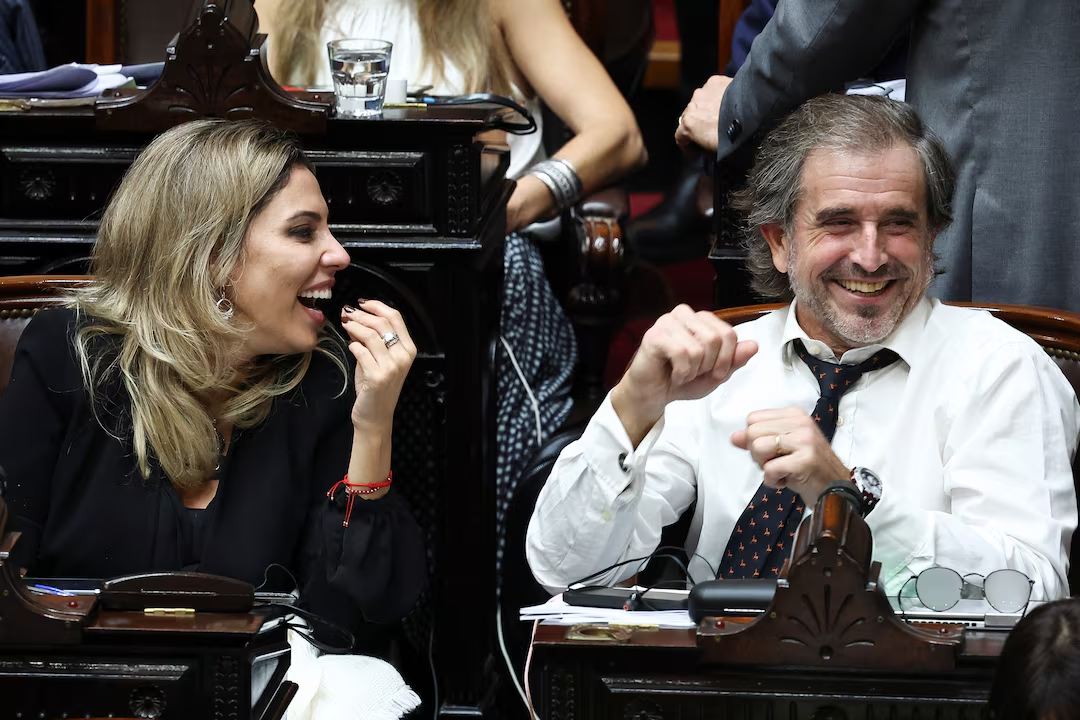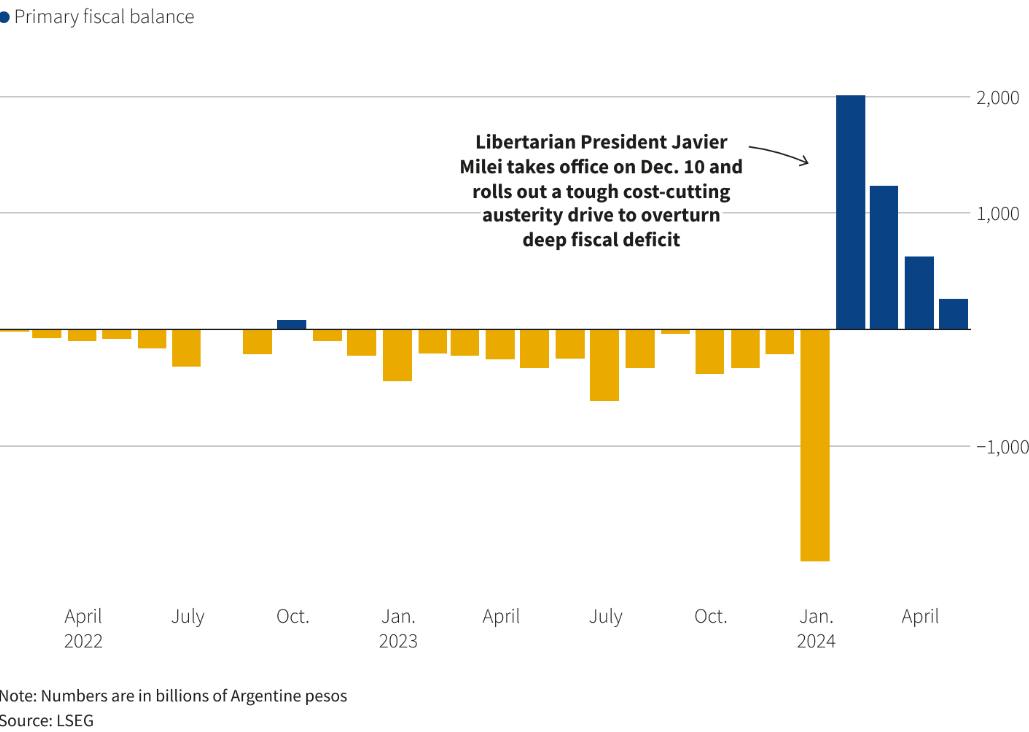The Argentine State Workers Association (ATE), one of Argentina’s largest unions, which represents a number of public sector employees, held a protest at the headquarters of Techint, a corporate group which owns a number of companies specializing in the production of steel, the construction of buildings, and other architectural products, which protestors claim to be where “the real power is.”
Ongoing Unrest for the President
The protest is a demonstration against President Javier Milei’s proposed “Bases Law” alongside the president’s controversial budget cuts to a number of government sectors in an effort to revive Argentina’s struggling economy. These cuts have resulted in the firing of fifteen thousand state employees as well as cuts to public universities’ funding.
The ATE claimed that a large number of politicians have attained their positions with aid from Paolo Rocca, the owner of Techint. The union stated that it is because of this influence that they targeted the private company, with one spokesman of the union, Rodolfo Aguiar, claiming that the “main decisions are no longer made in Balcarce 50 [the workplace of the president], but rather in the offices and legal firms of the main economic groups in our country.”

Aguiar further claimed that the Argentine government’s announcement of a budget surplus was “a lie” before attacking the policies that made the surplus possible and further demanding negotiations for a wage increase.
“It [the surplus] is based on cutting pensions and a brutal adjustment to public employment. They left us without a raise in April, and they want to leave us without a raise in May. All deadlines to settle this month’s assets have expired. We demand the immediate call for joint negotiations and a salary increase that, in a single installment, allows us to recover all the purchasing power lost since the government took office,” Aguiar stated.
Protestors highlighted their demands in a statement published following the protest:
- Immediate reinstatement of all layoffs and stopping layoffs.
- Regularization of all contractual links and move to Permanent Plant all workers.
- Salary and retirement increases that exceed inflation.
- Rejection of the restitution of Income Tax.
- Cessation of adjustment, misery and hunger policies.
- Rejection of any privatization of public companies.
- Defense of the Sustainability Guarantee Fund (FGS) and all the retired workers.
- Cancellation of the Anti-Mobilization Protocol.
- Cessation of intimidation policies towards state workers.
- Annulment of DNU 70/23, a decree which transformed state-owned companies to joint stock.
- Rejection of the Bases Law.
The Bases Law
A key focus for protestors is discussion centered around the proposed “Bases Law,” which previously passed through Argentina’s lower house of Congress, the House of Deputies, and is now being debated in the Senate.
This bill seeks to address a number of economic issues, including the reinstitution of income tax for single and married workers, a cut on taxation of assets below 100,000 USD, an increase in deductions for family housing expenses, the privatization of a number of state-run companies, and allowing the president further power in fields such as the economic, administrative, financial, and energy sectors for one year.
The bill, which was initially labeled the “Omnibus Bill,” has since lost a large number of the articles that it held under its prior name. Originally sitting at 600 articles, the bill now stands at 250 following negotiations between the various political representatives in Congress. There remains the possibility of further cuts amid debates surrounding the bill in the Senate.

This bill has faced a great deal of backlash from both unions and the general populace, with a strike from the nation’s oilseed and maritime worker unions having been held two days prior to the bill passing to the Senate. The bill represents Milei’s continued efforts to revive the Argentine economy through a process of deregulation, a process that the president has deemed to be his “Chainsaw Plan.”
This plan focuses on drastically cutting down on what the President deems unnecessary government spending. This spending, Milei alleges, is the prime cause of the current economic disaster that Argentina is currently facing, further claiming that a “political caste” is responsible.
Demonstrations against Milei’s policies are common; previously, thousands of university students took to the streets of Buenos Aires last week after universities were forced to shut down due to the president’s cuts. In another protest, the ATE attempted to prevent Milei from attending the annual Llao Llao economic forum by blocking roads leading to the secluded resort that hosts the forum. These attempts ultimately fell flat, as Milei arrived via helicopter in a move that Aguiar claimed was an act of cowardice.

Aguiar further alleged in a statement that Milei’s government seeks the “delivery of Patagonia [a region consisting of the southern tip of South America] to foreign powers,” before claiming in a later statement that “we are facing a program to colonize Argentina, and Javier Milei is in charge of executing it.”
Analysis
Protests against Milei are sure to continue as the president continues to establish a number of unpopular economic reforms that have left thousands unemployed and severely lowered the quality of higher education within Argentina. These policies, however, have not been in vain, as the government’s announcement of budget surpluses alongside endorsements of Milei’s policies from the International Monetary Fund (IMF).

Shortly after Milei won the presidential office, the government announced Argentina’s first budget surplus in years, a trend which has persevered through April and is likely to continue through May as well.


